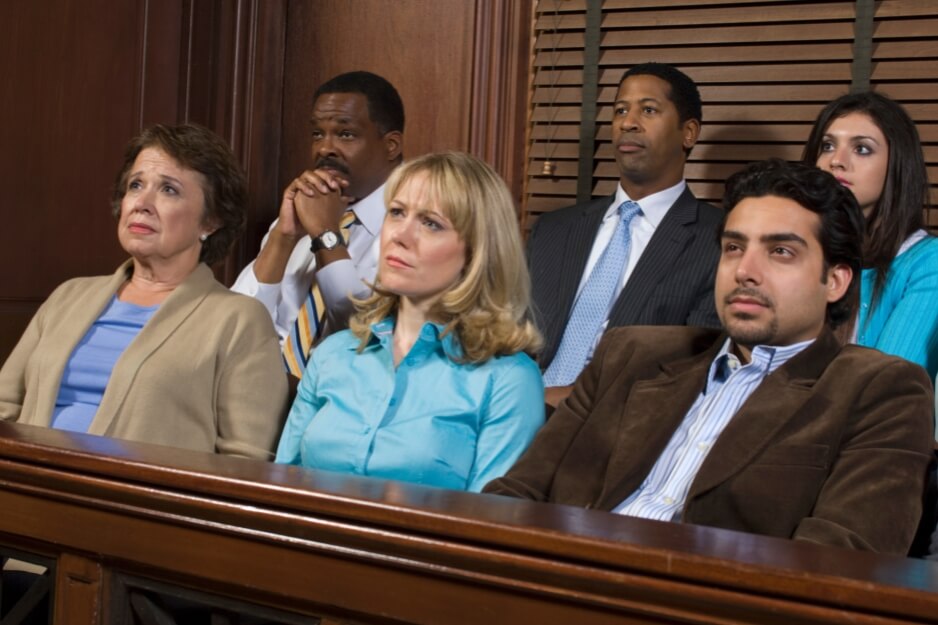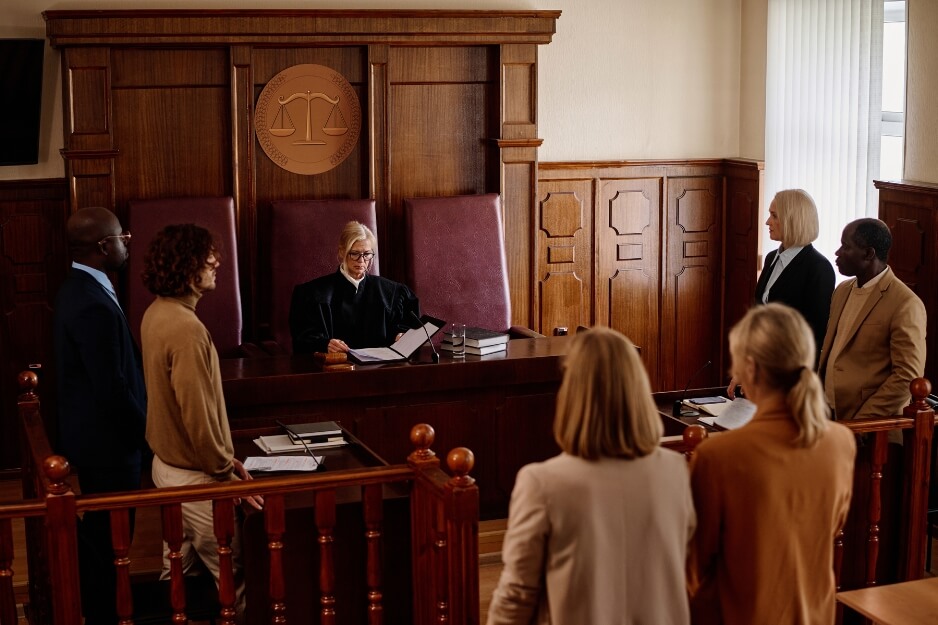At first glance, court reporting may seem like a quiet, behind-the-scenes role. We’re not in front of the judge. We’re not making opening arguments. We don’t wear robes or deliver verdicts. But we are there—every single moment. Listening. Capturing and preserving the record.
At Headley Legal Support, our court reporters work in a wide range of environments, from packed courtrooms buzzing with tension to empty chambers where just a handful of people gather for a hearing that might last only minutes. Each setting, regardless of its size, demands our full attention and professionalism.
And through it all, we’ve witnessed the full spectrum of human emotion—grief, joy, anger, relief, and sometimes even humor. In this post, we’re sharing just a few stories (with all identifying details removed, of course) that reflect the breadth of what we do and why it matters.
The High-Stakes Criminal Trial
“You could hear a pin drop when the verdict was read.”
This trial lasted for weeks. It involved a violent crime, a highly publicized investigation, and witness testimony that was at times heartbreaking. One of our most experienced court reporters, Linda, was assigned to the case from day one.
“The courtroom was always packed,” she recalled. “Family members, reporters, law students—it was standing room only most days.”
Tensions ran high. Every word spoken carried weight. The attorneys were sharp and fast-paced, objections flew, and witnesses often struggled under cross-examination. Through it all, Linda sat with perfect posture and unwavering concentration, her fingers flying across her steno machine.
When the jury finally returned with a verdict—guilty—there was a collective breath held across the room. Some cried. Others sat in stunned silence. The role of the court reporter may not include reacting, but Linda knew: she had helped capture a moment that would become a permanent piece of legal history.

A Brief Hearing, A Lifetime Impact
“It was over in minutes, but it changed everything.”
Sometimes, the most meaningful work we do happens in the shortest windows of time.
Just a few months ago, one of our team members, Javier, was assigned to cover a guardianship hearing. A young couple had stepped forward to take custody of their niece after the unexpected passing of her parents.
The hearing lasted less than 20 minutes. No dramatic testimonies. No heated arguments. Just a quiet presentation of the facts, a few questions from the judge, and a ruling.
But during those few minutes, you could feel the weight of what was happening. A little girl’s future was being decided. A family was stepping up in love and responsibility. Javier kept his head down, focused on recording the exchange, but he told us afterward that it was one of the most emotional hearings he’s ever sat through.
“It reminded me,” he said, “that courtrooms aren’t always about conflict. Sometimes they’re about healing.”
The Corporate Deposition That Almost Went Off the Rails
“I had to pause the proceeding twice just to get people to stop talking over each other.”
Depositions, particularly in civil litigation, can get intense. We recently covered a deposition in a corporate lawsuit involving multiple attorneys and a reluctant witness. It started calmly enough, but that didn’t last long.
The attorneys were passionate and competitive, interrupting each other constantly. The witness was visibly frustrated, sighing and rolling his eyes in response to the questions. At one point, the attorneys began objecting to one another, raising their voices in frustration.
Our reporter, Megan, handled it like a pro. She remained composed, respectfully paused the proceedings, and reminded everyone that they needed to speak one at a time so an accurate record could be made.
“It’s not just about speed,” she explained. “It’s about clarity. If the record isn’t clear, it’s not useful. My job is to protect that record.”
Her transcript ended up being over 200 pages long, and it held up in court during a later hearing where the attorneys relied heavily on what she had captured.
The Speeding Ticket That Became Something Bigger
“What started as a routine ticket hearing turned into a curveball no one saw coming.”
Not every day in court is dramatic—but once in a while, something unexpected happens. Take this traffic court case, for example.
It was supposed to be a quick hearing: a driver challenging a speeding ticket. Our reporter, Alex, expected to be in and out in under an hour. But when the driver presented dashcam footage that contradicted the officer’s report, the courtroom dynamic shifted completely.
The judge called for a recess to review the footage. Attorneys were brought in. Witnesses were asked follow-up questions. What had started as a simple matter became a much more complex issue of evidence and due process.
Alex captured every twist with professionalism and calm. “You never really know what’s going to unfold,” he said later. “Even in something that seems routine, accuracy matters.”
In the end, the ticket was dismissed, and the transcript became part of the public record—a document that clearly showed how justice can pivot on the smallest details.
Why We Do What We Do: In Their Own Words
We asked a few members of our team to share what motivates them to do this work day in and day out. Their responses speak volumes.
“I love knowing that my work matters—even if most people never notice it. Every word I capture could be the key to justice for someone.”
— Lisa, 12 years of experience
“People think it’s all typing, but there’s a lot of judgment involved—when to ask for clarification, when to mark a break, how to handle sensitive content. It’s very human work.”
— Mark, 8 years of experience
“It’s humbling, honestly. You’re there during people’s worst days—and sometimes their best. You just try to get it right.”
— Jessica, 15 years of experience
Final Thoughts
Court reporting is a unique profession. It combines technical skill with human intuition. It requires speed and accuracy, but also empathy and discretion. And while court reporters may not make legal arguments or deliver verdicts, we are essential to maintaining the integrity of the justice system.
At Headley Legal Support, we’re proud of the work we do—whether it’s during a high-stakes criminal trial or a quiet family court hearing. Every case deserves a complete and accurate record, and every person deserves to be heard.
To better understand how court reporters contribute to a fair legal process, read our blog on how court reporting services ensure a fair legal process.
If you need experienced, reliable, and compassionate court reporters, we’re here to help.
Reach out today to learn more about our services or to schedule a reporter for your next case.


